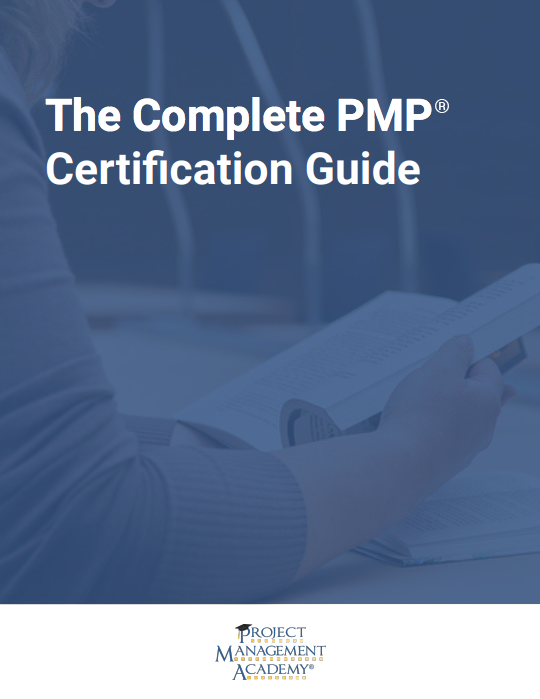The Project Management Academy Blog
Get the latest industry news, trends and insights you need to be the most effective Project Manager.
When the project is done, it is easy to simply slip into planning for the next project, whether because you have pressing deadlines, or you are looking for the next challenge. Seasoned project managers know the risk of skipping the project close, or postmortem, and ensure that they and their teams always take time to reflect, share insights, and document lessons learned. With the increase in remote teams, Project Managers must blend best practices for project close meetings with considerations of virtual meetings.
Share
PMP Certification | Professional Development | Project Management
Project Managers know that change is inevitable, and that it can be a barrier to goals or a window for opportunity. The other word for change is “disruption” and it is often used in the context of industries; new products disrupting the market, or new services disrupting exiting ones. Well known examples of industry disruption include Netflix, Amazon, and Uber. However, disruption is by no means limited to industries; it happens at the career level as well. Project Managers who can seize disruption as an opportunity will have more career longevity.
Share

Learn what steps you need to take to become a PMP certification holder and subscribe to our blog.
In marketing, best practice is to understand your customer to make an emotional connection leading to brand loyalty. In sales, the customer relationship is paramount; lose that trust and you lose business. In project management, the customer’s needs should be paramount, but sadly are often lost in the cacophony of voices from various stakeholders. Project Managers can enjoy more successful project outcomes and yes even “repeat business” when they put the user first. The User Story tool is a great way to ensure all team members have a shared understanding of the work at hand.
Share
Virtual or video interviews had already become a norm in the interview process back in 2015, when
Share
Professional Development | Project Management
One of the most important questions a project manager can ask, regardless of the methodology practiced or size of the business is: “What is the business reason for this work?”. And if the answer is, “because the CEO (or any high-ranking leader) said so,” the project manager most likely is facing endless challenges trying to force something to come together than really has no proven purpose. On the other hand, if the answer is, “because the work aligns with the business strategy in this way…” then the project manager will likely have less barriers and more success. Alignment with strategic objectives can result in projects that are three times more likely to be successful.
Share
Professional Development | Project Management
Those with Project Manager responsibilities in their work may be responsible for hundreds of thousands of dollars of company budget, be overseeing the work efforts of dozens of people or multiple teams yet have no formal authority within the organization. This is one of the challenges of project management, that you cannot depend on your place in the hierarchy or your title to convince others to follow your lead in reaching the desired business outcome. Influence is the way the most successful of project managers are able to navigate organizational structures and motivate team members. Being able to influence towards positive outcomes can help project managers to reach formal leadership roles. It is a leadership skill that serves all project managers throughout their careers.
Share
Corporate Training | Professional Development
Regardless of the drivers of the team or how it was formed, completing training together has benefits for the individuals, the group, and the larger organization. Employees who go through training as a team are more likely to have higher morale and deliver better work faster.
Share
Professional Development | Project Management
Critical skills are those that apply across industries, across roles, and in any size organization; emotional intelligence (“EQ”) is a critical skill. Project Management, a skill that fits within any industry, most roles, and any size organization, has wide professional applications. As such, emotional intelligence as a skill has great significance for any Project Manager who has any interaction with any other human. EQ matters for all Project Managers who enjoy success.
Share
What all professionals need, those with formal Project Management titles and those without, is a keen understanding of what makes a business function and how that business fits into the relevant industry. That understanding is known as “business acumen.” Consider this scenario:
Share
As you would approach any high impact effort, you need a plan for your own professional development. Your Project Management Skill Development plan should be more than just “get a new job!” which in fact, is a desired outcome not a plan. Carefully consider your goals, resources, and timeline to create a measurable and actionable skill development plan. To keep your career on track, including a job change or advancement, apply your project management skills to your own development.
Share